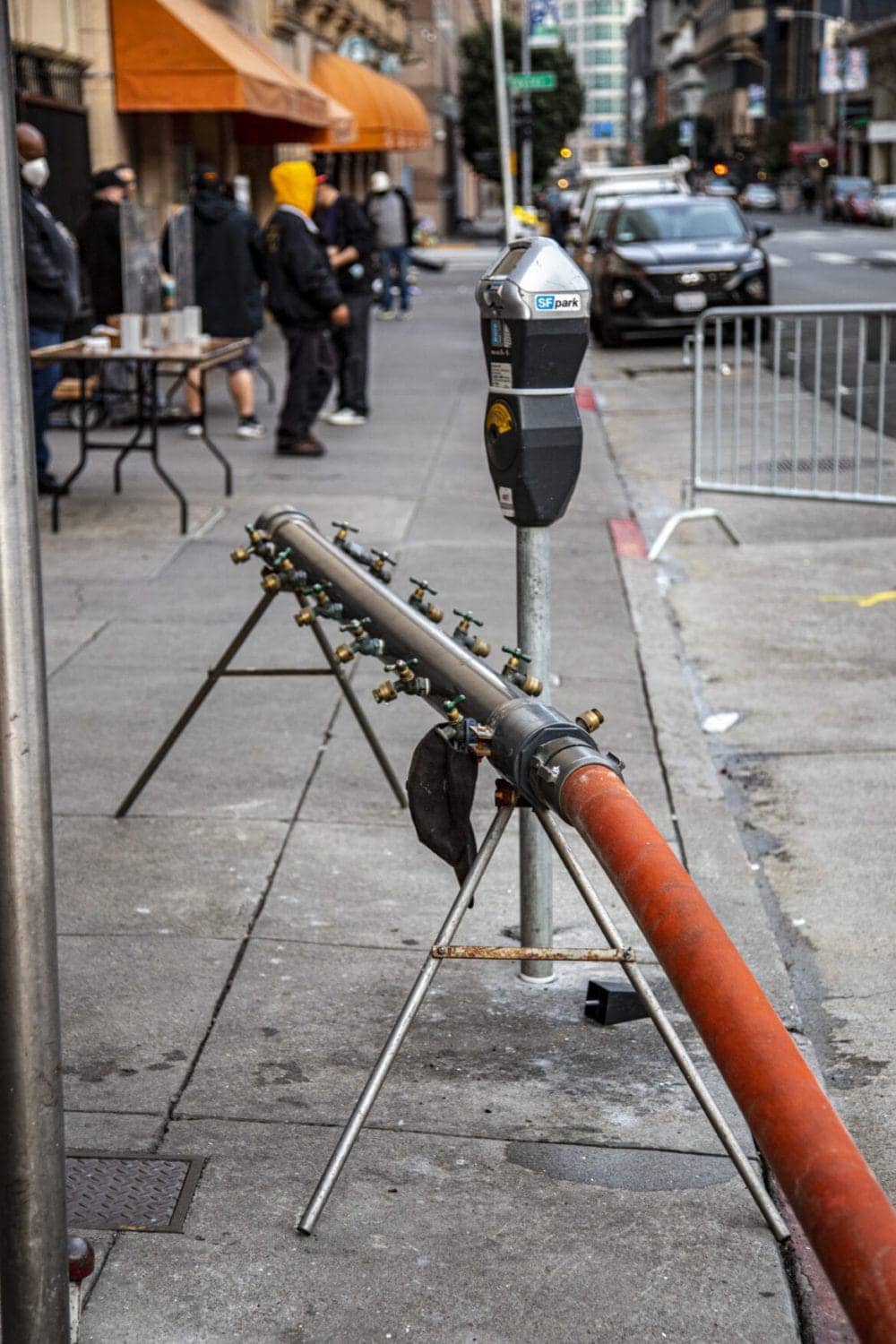
by Carlos Wadkins, Coalition on Homelessness
On March 16, the Coalition on Homelessness held a virtual presentation releasing their report on the barriers to water access faced by unhoused people followed by a panel discussion with community stakeholders.
Access to safe drinking water, sanitation and hygiene (WASH) facilities is an internationally recognized human right that thousands of unhoused San Franciscans currently don’t have adequate access to. The Coalition on Homelessness’ Human Rights Work Group collaborated in creating a WASH assessment designed to catalogue the lived experience of unhoused San Franciscans and identify their solutions to the current crisis.
The survey focused on water accessibility – barriers and current access – water usage and water storage, providing the opportunity for respondents to articulate their daily attempts to access water in San Francisco.
The results of the survey highlight the extent to which water access is a problem in San Francisco, with 75 percent of respondents facing barriers to accessing their daily water needs. Sixty-one percent of respondents don’t have access to even 15 liters of water per day – the lowest international minimum standard for water access.
According to Jennifer Friedenbach, executive director of the Coalition on Homelessness, this lack of access constitutes a “public health crisis.” She states: “Water is the foundation of dignity, health and survival. This is a public health issue at all times, but especially during a pandemic when unhoused people are at heightened risk when they cannot, for example, wash their hands regularly or keep hydrated. The lack of available water for unhoused folks is a public health crisis, and compounds the inequities already faced by this predominantly Black and Brown population.”
The survey shows that unhoused folks face a myriad of barriers to traveling to get water, ranging from mobility issues and disabilities to the reality of having belongings stolen. A majority of respondents travel over a 30-minute round trip to access safe drinking water.
Water is the foundation of dignity, health and survival and is a public health issue at all times, but especially during a pandemic.
COVID restrictions have even further reduced the access to water available to unhoused San Franciscans who relied on water from public places like schools, libraries and parks. There has also been a drive to increase the safety of public places by adding security guards at parks to monitor adults who enter, leading to reduced access to many of the water fountains available to the public.
John Stiefel, Water, Sanitation and Hygiene (WASH) consultant and volunteer with the Coalition on Homelessness, says the city hasn’t done enough to address this issue. “Although I’m grateful for the creation of additional permanent water points in the Tenderloin, Mission and Bayview last year, they are not sufficient to meet the WASH needs of the community as a whole, particularly those of unhoused San Franciscans.
“For instance, San Francisco currently does not meet the international minimal WASH standards that the United States and 192 other nations have committed to as part of the Sustainable Development Goals. To put this in perspective: Based on the 2019 Point in Time Count, there would need to be an additional 36 permanent water points in District 6 alone to meet the international minimum standard for water access established by the United Nations.”
The Coalition on Homelessness’ Human Rights Work Group is demanding the immediate addition of three permanent water points in the Tenderloin, raising the total to six. Contained inside the report are also recommendations for more permanent solutions, including permanent housing with adequate WASH facilities and a significant increase in publicly accessible water assets.
Carlos Wadkins, press contact for the Coalition on Homelessness, 280 Turk St., San Francisco, www.cohsf.org, can be reached at can be reached by phone at 530-218-2104 or cwadkins@cohsf.org.





